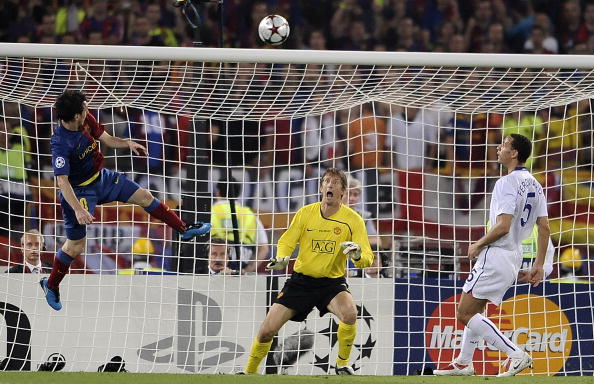By Andrew Warshaw
May 27 – The phenomenal pull of the Champions League was brought into sharp focus today when it was revealed that tomorrow’s glamour final between Manchester United and Barcelona will be the richest on record.
The two teams will be playing for a staggering €200 million (£173 million/$286 million) windfall comprising prize money, an increase in squad value owing to global exposure, TV rights and brand awareness, with €126 million (£109 million/$184 million) going to the triumphant club and the runner-up netting a cool €73 million (£63 million/£104 million)).
The figures are highlighted in a new study commissioned by tournament sponsors Mastercard and come just as another sponsor, Heineken, has announced it has extended its contract with UEFA for a further three years.
The Mastercard report by Simon Chadwick, professor of sports business strategy and marketing at Coventry University’s Business School, estimates that altogether the final will be worth €369 million (£320 million/$527 million), a rise of €17.5 million (£15.1 million/$24.9 million) on last year and an increase of €59 million (£51 million/$84 million) compared with the last time Manchester United and Barcelona met in the 2009 final.
London, which is hosting the game at Wembley, is expected to scoop roughly €52 million (£45 million/$74 million) ahead of next year’s Olympics and Paralympics as the final breaks all previous records because of the widespread fan base of the two clubs and their unique global brands.
“While the UEFA Champions League is a strong brand in its own right, the nature and strength of the brand is clearly heavily influenced by its constituent parts – the participating clubs,” Professor Chadwick told a news conference in London.
“Manchester United versus Barcelona is the dream final as far as most football fans are concerned.
“But the English and Spanish champions are two of the most successful teams off the pitch too.”
David Taylor, chief executive of UEFA’s marketing arm UEFA Events, said the final was probably worth even more than the Superbowl in the United States.
Inflated ticket prices for the end-of-season showpiece have come under fierce attack but Taylor said the long-term benefits have been under-estimated.
“I’m still getting requests for tickets, there is huge demand and we could have sold it twice over,” Taylor told insideworldfootball.
“But there is a wider issue here.
“Football is often seen in a negative way because of the wealth attracted and how much players earn.
“But these figures show that it has real economic benefit to the wider community – a lot of that money goes back into the economy.
“Football isn’t always on the take.”
Contact the writer of this story at zib.l1751413892labto1751413892ofdlr1751413892owedi1751413892sni@w1751413892ahsra1751413892w.wer1751413892dna1751413892
Related stories
May 2010: Champions League winners set for multi-million pound windfall
December 2009: Multi-million pound Champions League riches revealed

